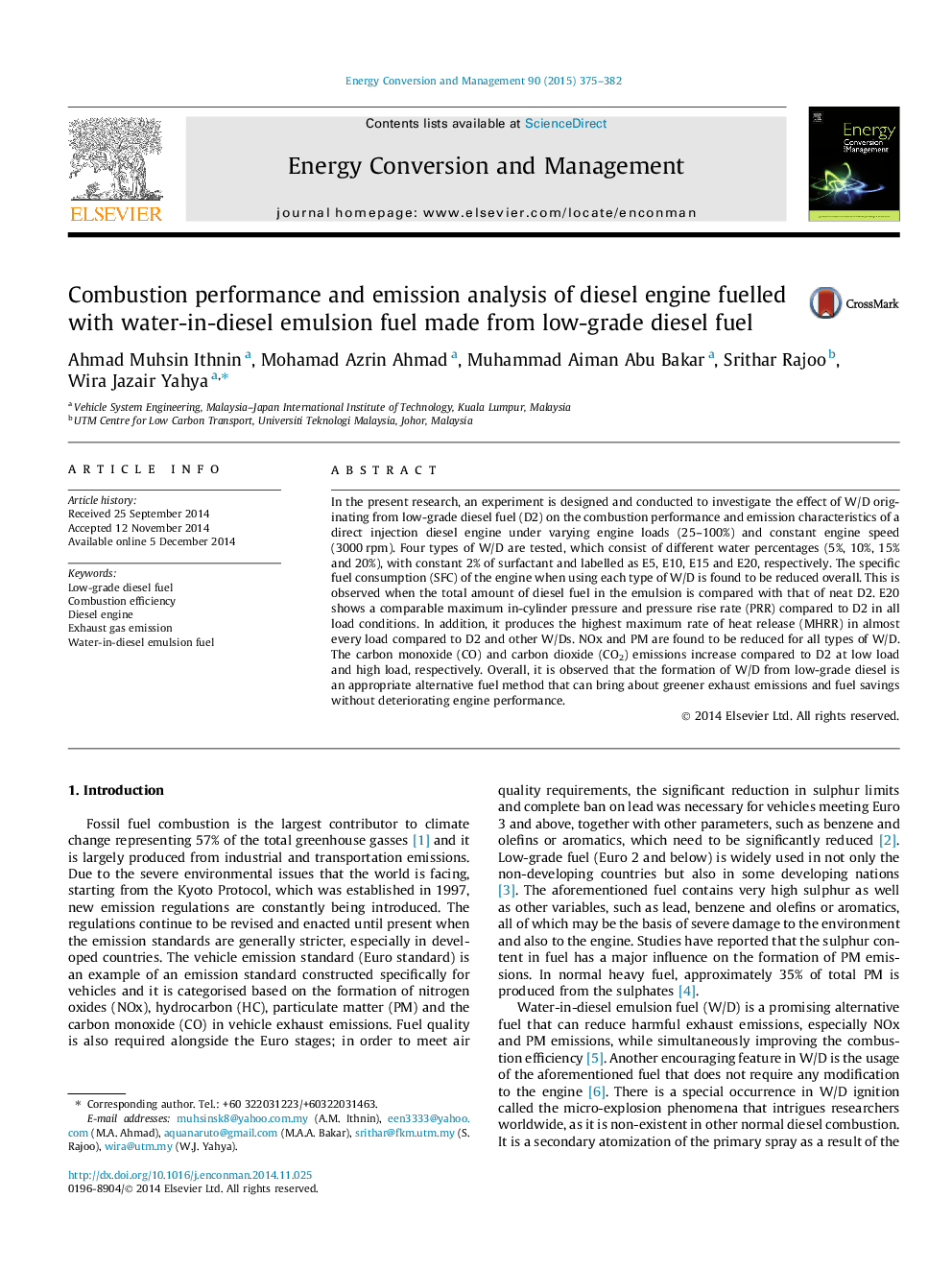| کد مقاله | کد نشریه | سال انتشار | مقاله انگلیسی | نسخه تمام متن |
|---|---|---|---|---|
| 771822 | 1462872 | 2015 | 8 صفحه PDF | دانلود رایگان |
• Effect of using emulsified fuel made from low-grade fuel in engine are investigated.
• Specific fuel consumption of the engine is reduced overall for all types of W/D.
• Comparable maximum in-cylinder pressure and pressure rise rate compared to D2.
• NOx and PM are found to be reduced for all types of W/D.
• CO and CO2 emissions increase compared to D2 at low load and high load.
In the present research, an experiment is designed and conducted to investigate the effect of W/D originating from low-grade diesel fuel (D2) on the combustion performance and emission characteristics of a direct injection diesel engine under varying engine loads (25–100%) and constant engine speed (3000 rpm). Four types of W/D are tested, which consist of different water percentages (5%, 10%, 15% and 20%), with constant 2% of surfactant and labelled as E5, E10, E15 and E20, respectively. The specific fuel consumption (SFC) of the engine when using each type of W/D is found to be reduced overall. This is observed when the total amount of diesel fuel in the emulsion is compared with that of neat D2. E20 shows a comparable maximum in-cylinder pressure and pressure rise rate (PRR) compared to D2 in all load conditions. In addition, it produces the highest maximum rate of heat release (MHRR) in almost every load compared to D2 and other W/Ds. NOx and PM are found to be reduced for all types of W/D. The carbon monoxide (CO) and carbon dioxide (CO2) emissions increase compared to D2 at low load and high load, respectively. Overall, it is observed that the formation of W/D from low-grade diesel is an appropriate alternative fuel method that can bring about greener exhaust emissions and fuel savings without deteriorating engine performance.
Journal: Energy Conversion and Management - Volume 90, 15 January 2015, Pages 375–382
